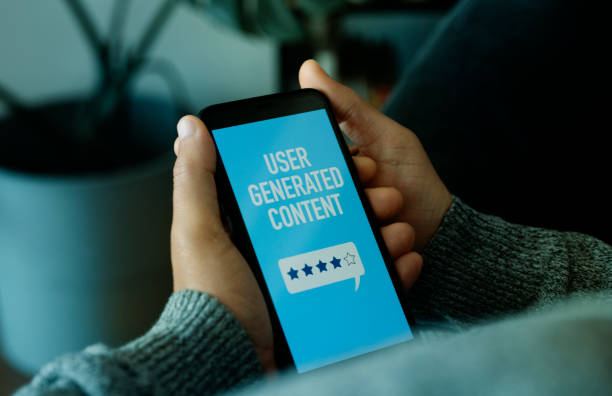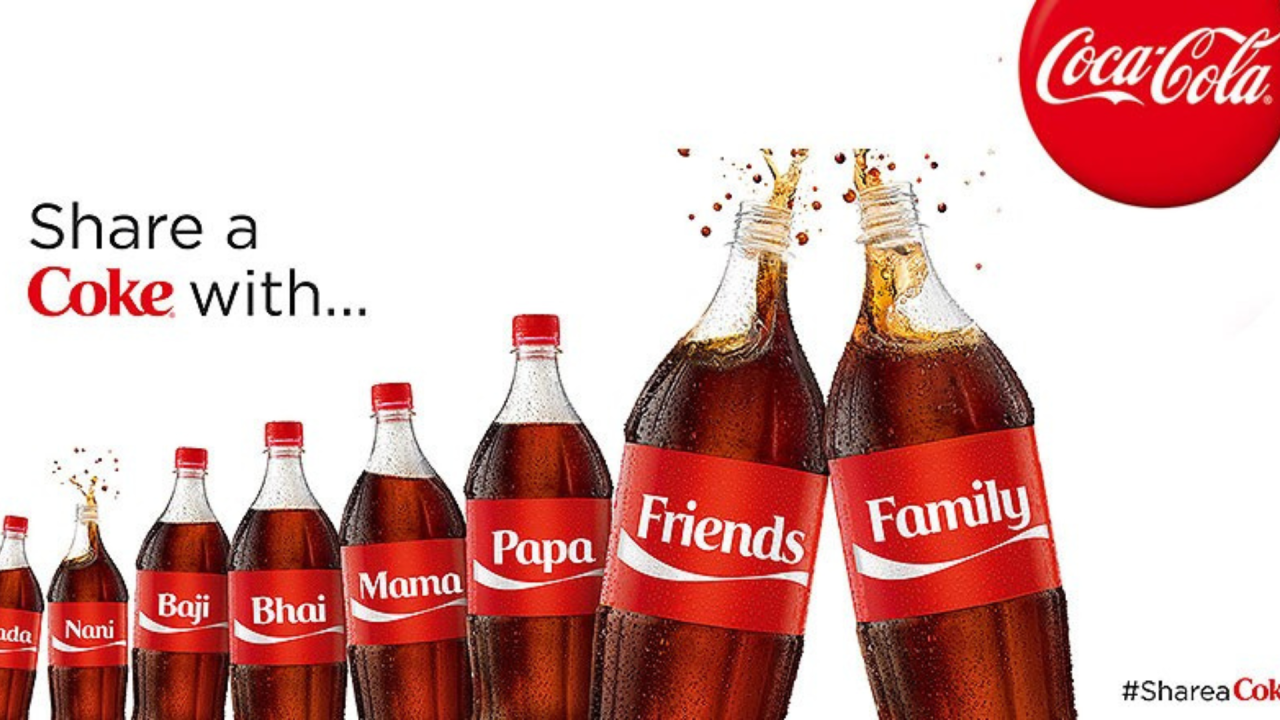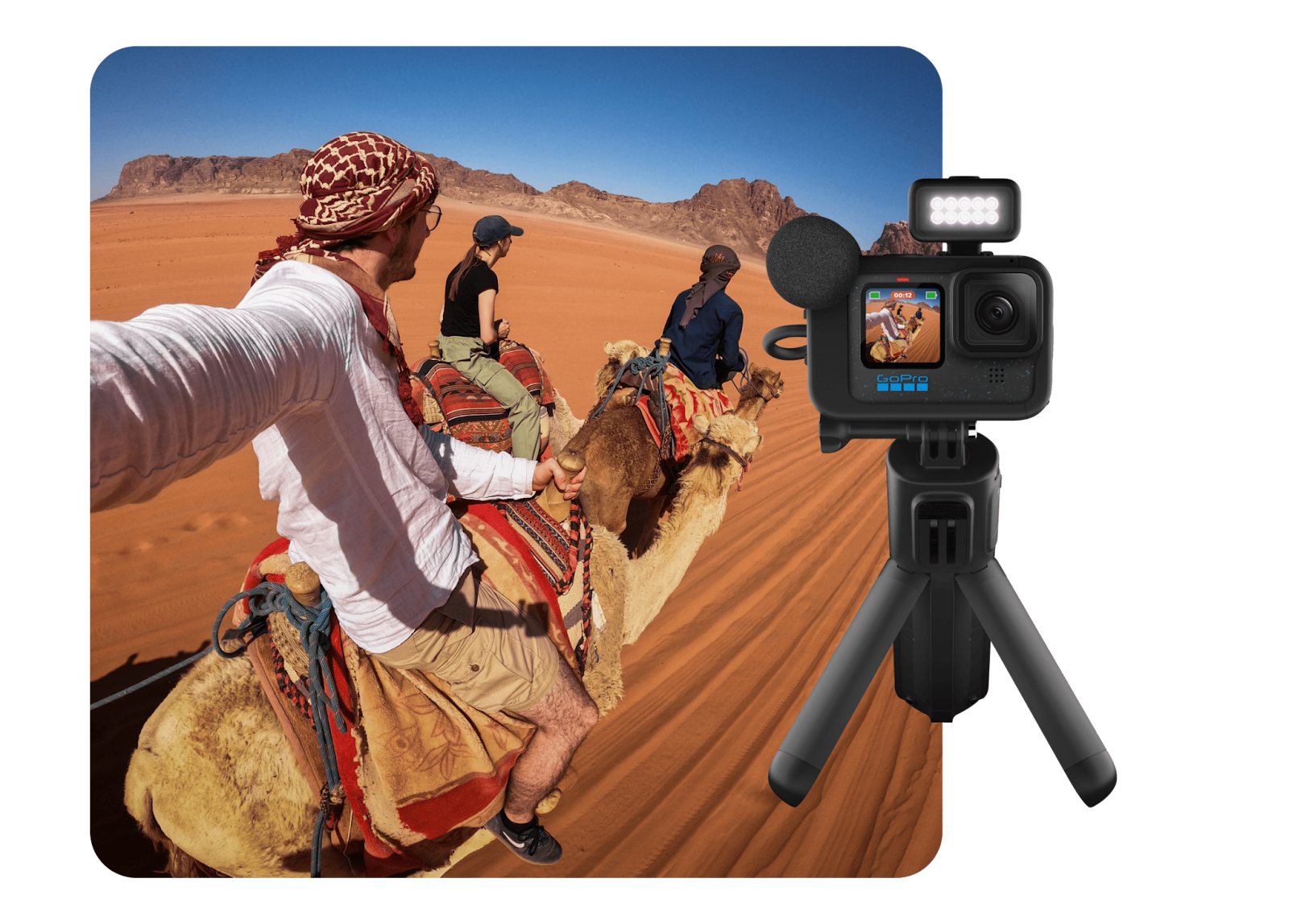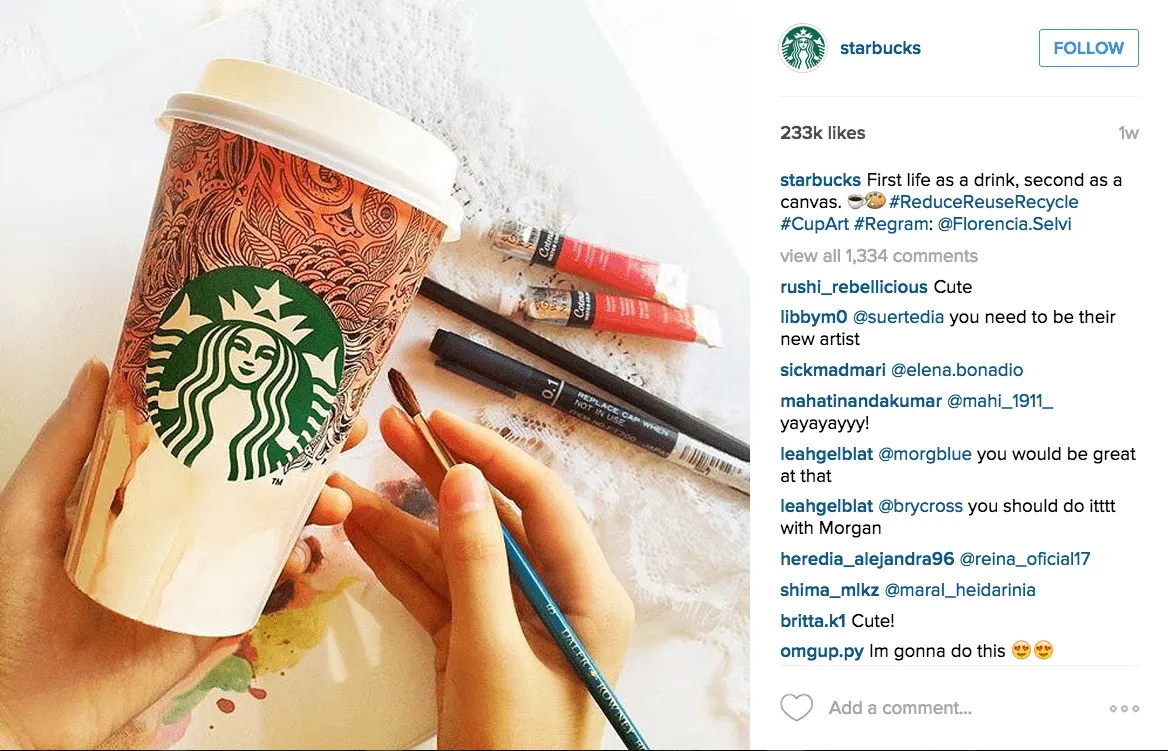Have you ever ordered a handcrafted piece of jewelry from an Etsy shop and shared a photo on your Instagram account or filmed yourself trying out a new gaming console on a YouTube livestream? Whether or not you know it, both are examples of user-generated content, also known as UGC or user-generated content.
User-generated content (UGC) has emerged as a pivotal force in the marketing landscape, offering brands a unique avenue to connect with their audiences on a more personal and authentic level. By harnessing the power of real customer experiences, brands can foster higher engagement, increase social media followers, and create a ripple effect that extends far beyond traditional advertising efforts. This organic approach not only builds trust but also amplifies the brand’s reach through genuine interactions and testimonials.
But why is UGC so effective? The answer lies in consumer behavior. Today’s audiences are savvy and discerning, often skeptical of polished advertisements and promotional content. Instead, they seek out authentic voices and real-life experiences shared by fellow consumers. Studies show that a significant portion of consumers turn to social networks for pre-purchase research, relying on the unfiltered opinions and reviews of their peers to inform their buying decisions. This shift in trust underscores the immense value of UGC in shaping consumer perceptions and driving purchase intent.
Despite its proven benefits, many marketers have yet to fully leverage UGC, often due to uncertainty about where to begin. The potential for user-generated content to boost engagement, enhance brand loyalty, and increase revenue is undeniable, but it requires a strategic approach to unlock its full potential. In the following sections, we’ll explore the essential steps to crafting a successful UGC strategy, empowering you to tap into this powerful resource and elevate your marketing efforts to new heights. Let’s dive in.
What Is User-Generated Content?
User-generated content (UGC) has become integral to modern marketing, enabling brands to harness the genuine voices of their customers. Picture the countless Instagram posts, YouTube reviews, and blog articles where real people share their experiences with a product or service. These pieces of content, created by everyday users rather than the brands themselves, offer a genuine glimpse into how products are used and appreciated in the real world.
They bring a level of authenticity that polished marketing campaigns often lack, resonating more deeply with potential customers. From enthusiastic social media shoutouts to detailed unboxing videos, UGC showcases real-life interactions and builds trust among consumers. Brands that effectively harness UGC can create a vibrant, interactive community around their products, fostering deeper connections and driving organic growth through the power of shared experiences.
The Three Main Types of User-Generated Content
User-generated content (UGC) is a cornerstone of modern digital marketing, providing authenticity, engagement, and trust. Among the various types of UGC, photos and videos, testimonials, and reviews stand out as the most impactful. This article delves into these three main types, exploring their benefits, relevance, and how brands can leverage them effectively.
1. Photos and Videos (The Visual Impact)
Photos and videos are among the most powerful forms of UGC due to their visual appeal. They capture real-life experiences and emotions, making them highly relatable and engaging. Platforms like Instagram, YouTube, TikTok, and Facebook thrive on visual content, providing an ideal environment for users to share their experiences.
Example:
Starbucks often shares user-generated photos of customers enjoying their beverages. This not only highlights the product but also creates a sense of community among its customers.
2. Testimonials (Building Credibility)
Testimonials are personal endorsements from satisfied customers. They typically highlight specific benefits and positive experiences, providing social proof that enhances a brand’s credibility. Testimonials can be presented in various formats, including written quotes, video testimonials, and social media shoutouts.
Example:
Beauty brand Glossier features customer testimonials on their product pages and social media. These testimonials often include photos and personal stories, creating a strong connection with potential buyers.
3. Reviews (The Power of Peer Feedback)
Reviews are detailed feedback provided by customers about their experiences with a product or service. These can be found on e-commerce sites, dedicated review platforms, social media, and Google My Business. Reviews are critical for influencing purchasing decisions, as they provide an unfiltered perspective on the product’s performance.
Example:
Amazon’s robust review system allows customers to rate products and leave detailed feedback. These reviews often include pros and cons, photos, and videos, providing comprehensive information for potential buyers.
Advantages of User-Generated Content
1. Enhanced Trust and Authenticity
Consumers generally trust content created by their peers more than traditional advertising. According to a study by Nielsen, 92% of consumers trust recommendations from friends and family over branded content. UGC provides this layer of authenticity, as it comes from real customers who have experienced the product or service firsthand.
2. Increased Engagement
UGC encourages higher engagement rates. A report by HubSpot reveals that UGC-based posts see a 28% higher engagement rate than standard brand posts. This increased interaction helps to create a sense of community and loyalty among customers.
3. Cost-Effectiveness
Creating original content can be time-consuming and expensive. UGC allows brands to leverage the creativity and experiences of their customers at little to no cost. This not only reduces the content creation burden on the brand but also increases the volume of content available for marketing efforts.
4. Improved SEO and Online Presence
UGC can significantly boost a brand’s SEO efforts. Fresh and relevant content created by users can improve search engine rankings. A study by Kissmetrics found that websites with UGC experience a 20% increase in return visitors and a 90% increase in the time spent on the site.
5. Social Proof
UGC acts as social proof, which is a powerful psychological phenomenon where people assume the actions of others reflect correct behavior. Seeing others use and endorse a product or service can influence potential customers to follow suit. According to BrightLocal, 88% of consumers trust online reviews as much as personal recommendations.
6. Enhanced Brand Loyalty and Community Building
UGC creates a sense of community and belonging among customers. When users see their content being recognised and shared by a brand, it enhances their emotional connection and loyalty. This community-driven approach helps in building long-term relationships with customers.
7. Increased Conversion Rates
UGC has been proven to significantly boost conversion rates.. A study by TurnTo Networks found that 90% of consumers say UGC influences their purchasing decisions, and UGC can increase conversion rates by up to 29%. This is because UGC provides genuine insights and reviews from real users, helping potential customers make informed decisions.
8. Better Understanding of Customer Preferences
Analyzing UGC can provide brands with valuable insights into customer preferences and behavior. By understanding what customers like or dislike about a product, brands can make data-driven decisions to improve their offerings and tailor their marketing strategies accordingly.
Case Studies and Statistics Supporting UGC
- Coca-Cola’s “Share a Coke” Campaign: Coca-Cola’s iconic “Share a Coke” campaign, where they replaced their logo with popular names, encouraged customers to share photos of their personalised bottles on social media. This campaign generated over 500,000 photos and resulted in a 2% increase in U.S. sales.
- GoPro: GoPro extensively uses UGC by encouraging users to share their action videos. This strategy has not only provided GoPro with a vast library of engaging content but also helped build a community of loyal customers. GoPro’s YouTube channel, featuring UGC, has over 10 million subscribers.
- Starbucks’ White Cup Contest: Starbucks encouraged customers to decorate their white cups and share photos on social media. This contest received over 4,000 entries within three weeks and significantly boosted engagement and brand visibility.
Integrating Referwo: Leveraging UGC from Influencers
What is Referwo?
Referwo is an influencer marketing platform designed to connect brands with influencers who can create and share user-generated content. By leveraging the power of influencers, Referwo helps brands tap into the vast potential of UGC to drive sales and reach a wider audience.
How Referwo Enhances UGC for Brands
- Access to a Network of Influencers: Referwo provides brands with access to a diverse network of influencers who can create authentic and engaging content. These influencers have established trust and credibility with their followers, making their content more impactful.
- Streamlined Campaign Management: Referwo offers tools to streamline the management of influencer campaigns, from initial outreach to performance tracking. This ensures that brands can efficiently execute and monitor their UGC campaigns.
- Analytics and Insights: Referwo provides detailed analytics and insights on the performance of UGC campaigns. Brands can track metrics such as campaign performance insights, Dealshub traffic, past successes, total sales generated, and detailed profiles. This ensures a perfect brand-influencer match.
- Enhanced Reach and Visibility: By partnering with influencers, brands can amplify their reach and visibility. Influencers’ content can reach a larger and more targeted audience, driving higher engagement and conversions.
Maximising UGC with Referwo
- Identifying the Right Influencers: Referwo’s platform allows brands to identify and collaborate with influencers whose audience aligns with their target market. This ensures that the UGC resonates with the right audience.
- Creating Engaging Campaigns: Referwo assists brands in designing engaging and creative campaigns that encourage influencers to produce high-quality UGC. This includes setting clear guidelines and providing incentives for influencers.
- Leveraging Multi-Channel Distribution: Referwo helps brands distribute UGC across multiple channels, including social media, websites, and email marketing. This multi-channel approach maximises the visibility and impact of the content.
- Continuous Optimization: Referwo’s analytics tools enable brands to continuously monitor and optimise their UGC campaigns. By analyzing performance data, brands can make informed adjustments to enhance the effectiveness of their campaigns.
Conclusion
User-generated content has firmly established itself as a cornerstone of effective digital marketing strategies. The authenticity, trust, and engagement it fosters are unparalleled, offering brands a powerful tool to connect with their audience in a genuine and impactful way. From enhancing SEO and driving higher engagement to boosting conversion rates and building a loyal community, the advantages of UGC are supported by compelling studies and statistics. Brands that leverage UGC can expect to see significant improvements in their marketing performance and customer relationships.
For brands looking to maximize the benefits of UGC, Referwo stands out as an exceptional choice. By connecting brands with influencers who can create and share authentic user-generated content, Referwo amplifies the reach and impact of UGC campaigns. Referwo makes it easy for brands to leverage the power of UGC to skyrocket their sales and reach. Don’t miss out on the opportunity to transform your marketing strategy with Referwo—unlock the full potential of user-generated content today!













